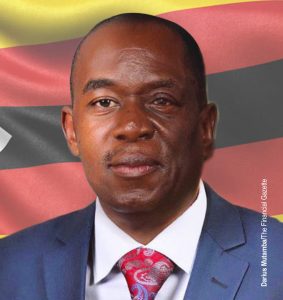

Analysts say Zimbabwe’s tourism industry could be hit by a wave of cancellations in the run-up to the country’s general elections later this year, due to fears that the polls may turn violent.
The country has a history of contested and violent elections. This also comes as the tourism industry is recovering from the effects of the Covid-19 pandemic, which devastated the industry over the last two years.
Recent months have seen increases in flights to Harare, as well as the introduction of new routes by major airlines operating in the country. Tourist arrivals are expected to increase to 1,4 million in 2023, with tourism receipts expected to total US$623 million. Analysts, however, fear that the upcoming elections could derail this.
 “The tourism sector is very sensitive to political instability as tourists have to be physically present in the different tourist attractions for them to enjoy the services,” economist Clemence Machadu said.
“The tourism sector is very sensitive to political instability as tourists have to be physically present in the different tourist attractions for them to enjoy the services,” economist Clemence Machadu said.

President Emmerson Mnangagwa will face CCC leader Nelson Chamisa
“So, any perceived risk that raises safety concerns in the political environment can result in our tourist destinations being substituted for others in different countries. We have embassies, international media, and travel advisors whose ears are always on the ground and are quick to raise any red flags that might dampen the sector’s prospects.
“We cannot rule out incidences of political instability based on the historical precedent of previous elections in the country, especially noting the unchanged circumstances that caused violence in those previous elections, and also taking into account some political skirmishes that have already been recorded since the beginning of the year,” Machadu added.
He said it was important for all political parties to hold peaceful campaigns and publicly denounce violence while encouraging their supporters to uphold peace in their political conduct.
“Covid-19 has already done enough damage to the tourism sector over the past few years; hence political instability should not be allowed to destroy the sector, which is already projected to decline sharply in growth this year,” Machadu said.
Victor Bhoroma, an economic analyst, said the tourism sector could suffer a knock from the political and social unrest that characterises the election period.
“If history repeats itself in terms of violence and political unrest, then yes it will dent the country’s perception and negatively affect tourist arrivals. It also affects business planning for tourism players. The solution is to respect the rule of law as a bedrock to peace, the value of pragmatism to economic stability and instill good leadership ethos in our governance structures. Unfortunately, this is a process and it needs political will at high level. Over time, we will achieve it,” Bhoroma said.
IH Securities said historical data shows, for the most part, the country registers poor economic performance during an election year.
“As the country heads towards elections, there is increased uncertainty about the direction the economy is going to take,” IH said in a recent equity strategy note.
Farai Chimba, the Hospitality Association Zimbabwe (HAZ) president, said the responsibility of all players and citizens is to heed the call for peaceful elections that will see the already positive build-up to sustained business levels across all sectors and we will have a positive last half of the year.
“The sector is optimistic in the build-up and post-election period with an indication that the post Covid-19 recovery is on an upward trend. Election season brings with it a segment of the market, which has always boosted occupancies,” Chimba said.

“Moreso, given the re-engagements that saw the last elections open up to a wider international and regional observer and press contingent. We also have the local election teams that take up rooms in all regions as they carry out their duties. Forward bookings show the international market continues to make bookings and inquiries which recent international tourism shows that have been held to date are a testament to.”
Addressing delegates at the ED Business Summit 2023 organised by the Confederation of Zimbabwe Retailers, Mnangagwa encouraged the business community to complement the government’s efforts in fostering peace.
“As the country heads for the harmonised general elections sometime this year, I call upon all Zimbabweans to undertake this exercise peacefully. My government wishes to ensure that businesses have mechanisms in place to guarantee the protection of premises and property during the election season,” Mnangagwa said.
Tourism is one of the country’s foreign currency earners, generating US$265,6 million last year, a 133,9 percent increase from the US$112,7 percent earned in the comparative year. Tourist arrivals in Zimbabwe increased by 165 percent to 693 498 in the first nine months of 2022, raising hopes for the sector’s revival.
According to the Zimbabwe Tourism Authority (ZTA) performance report, the figures are still far from pre-Covid levels, but more than double the international arrivals received in the first nine months of 2021 at 164 062.
In a statement released in the aftermath of a brutal military crackdown on opposition party demonstrators during the last elections, the ZTA said the country remained one of the safest destinations for domestic and foreign tourists.
In the week ending July 15, 2008, Zimbabwe’s tourism industry lost close to US$10 million in potential earnings after multiple cancellations triggered by the bloodbath that greeted the post-election period that June.
At least 33 000 foreign tourists cancelled their bookings during the period following heightened travel warnings, official statistics said at the time. newsdesk@fingaz.co.zw